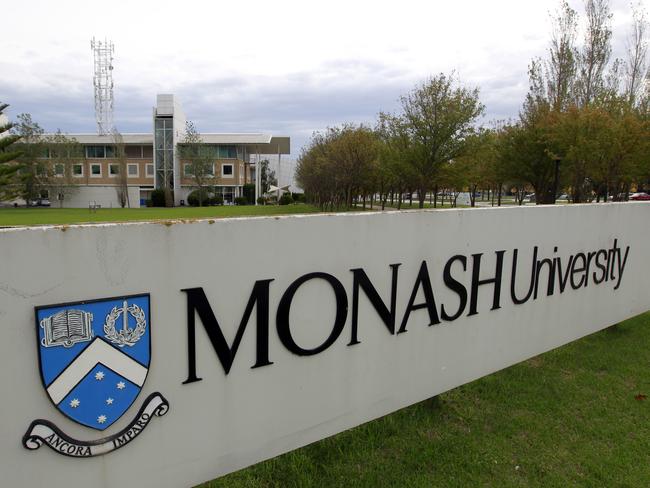Monash Covid vaccine discovery provides hope, as fears grow XEC variant will soon reach Australia
A Monash discovery could pave the way for Covid vaccines that better protect against potentially deadly new strains. It comes as fears grow the XEC variant sweeping the U.S. will soon hit here.

Victoria
Don't miss out on the headlines from Victoria. Followed categories will be added to My News.
A groundbreaking discovery by Victorian scientists could pave the way for stronger Covid vaccines, that better protect against potentially deadly new strains.
It comes as Covid mutations KP. 2, KP. 3, KP. 3.1.1 and LB. 1 sweep Victoria, and fears grow the worrying XEC strain running rampant in the United States and Europe will soon hit Australia.
State government data released on Friday reveals 107 Victorians a day were hospitalised with Covid over the past week, and 75 people died from the virus between August 7 and September 3.
But there is fresh hope new vaccines will better protect Australians against emerging Covid strains.

Using animal models, Monash University researchers have found a way to “turbocharge” vaccine delivery by jolting ‘bystander’ immune cells into action, with the new technique boosting the effectiveness of both traditional and mRNA-based Covid vaccines.
The Monash research, published in the prestigious Immunity journal, found that adding low doses of vaccine-specific antibody to a Covid vaccine stimulated the immune system’s B cells, which are responsible for generating antibodies to fight viral infections.
Senior study author Dr Isaak Quast, from Monash University’s Department of Immunology,
said a key challenge in designing vaccines was ensuring sufficient activation and duration of B cell responses, to achieve the quantity and quality of antibodies needed for protection.

“Adding vaccine-specific antibodies is like adding a red flag, and making it really obvious to B cells that they need spring into action,” he said.
“This method stimulates B cells that would otherwise fail to be active participants in the immune response, potentially allowing new parts of invading viruses to be recognised, thus increasing protective immunity.”
Lead author Dr Alexandra Dvorscek said harmful viruses like flu and Covid changed over time and strains could differ significantly from one year to the next.
“We need that broad-spectrum recognition and response,” Dr Dvorscek said.
“One structure that is usually poorly recognised by the immune system is the conserved parts of viral proteins – the ‘essence’ of a virus that remains stable amid whatever new variants emerge as a virus evolves to evade immune detection.”
Dr Dvorscek said like adjuvants, which enhanced the immune system’s response to vaccination, adding antibodies prolonged immune responses and unleashed more antibody production.
“The beauty of this technique is that, in collaboration with Dr Deborah Burnett from the Garvan Institute in Sydney, we showed that this works for both traditional and mRNA-based vaccines such as those targeting SARS-CoV-2,” she said.

“This obviously has implications for existing vaccines and those in development, that we can harness this technology to boost immune responses in a safe and highly targeted way.
“We have found a way to potentially use the immune system’s own method, antibodies, to influence how our body responds to a vaccine. This could be particularly relevant for people with poor responses to vaccines, such as the elderly or immunosuppressed. Future research will have to test that.”
Dr Quast said that while it had so far only been tested in animal models, the research could aid the development of vaccines to target structures of pathogens that were not otherwise recognised strongly enough by the human immune system.
“In a diverse human population some people will always respond better than others, and this
method could help ensure that a larger proportion of the population develops a ‘good, sufficient’ immune response for protection,” he said.
ALL ABOUT XEC
XEC is an Omicron variant and closely related to KP. 3.3, which is a descendant of the “FLiRT” variants.
The “X” in XEC’s name comes from the fact that the strain looks to be a “recombinant” of two other closely related parent variants called KS. 1.1 and KP. 3.3. Both KS. 1.1 and KP. 3.3 are descendants of the JN. 1 strain.
XEC appears to be very contagious, and there are fears existing vaccines may be slightly less effective against the new variant.
Symptoms of XEC Covid are similar to other strains of the virus, including fever or chills, congestion, runny nose, cough, loss of taste or smell, shortness of breath, body aches, sore throat, fatigue, nausea and headache.



